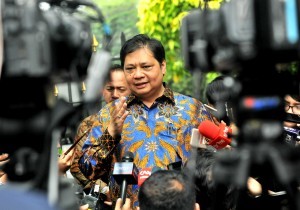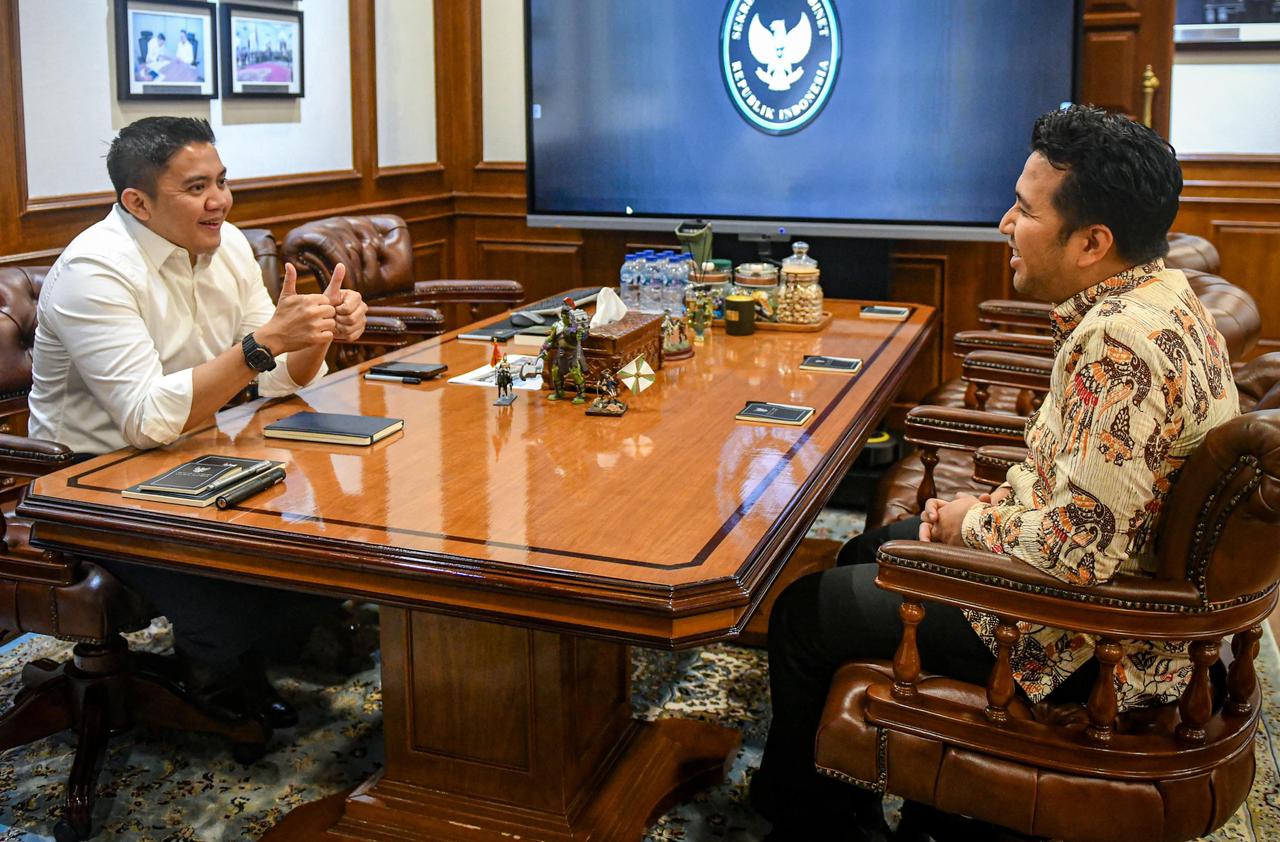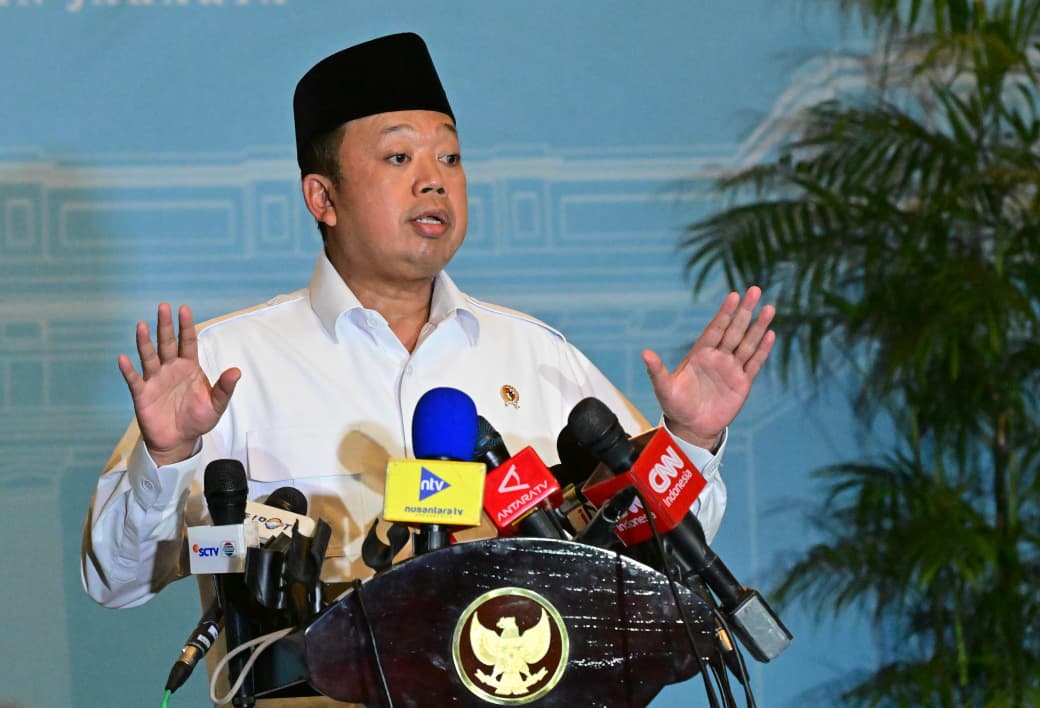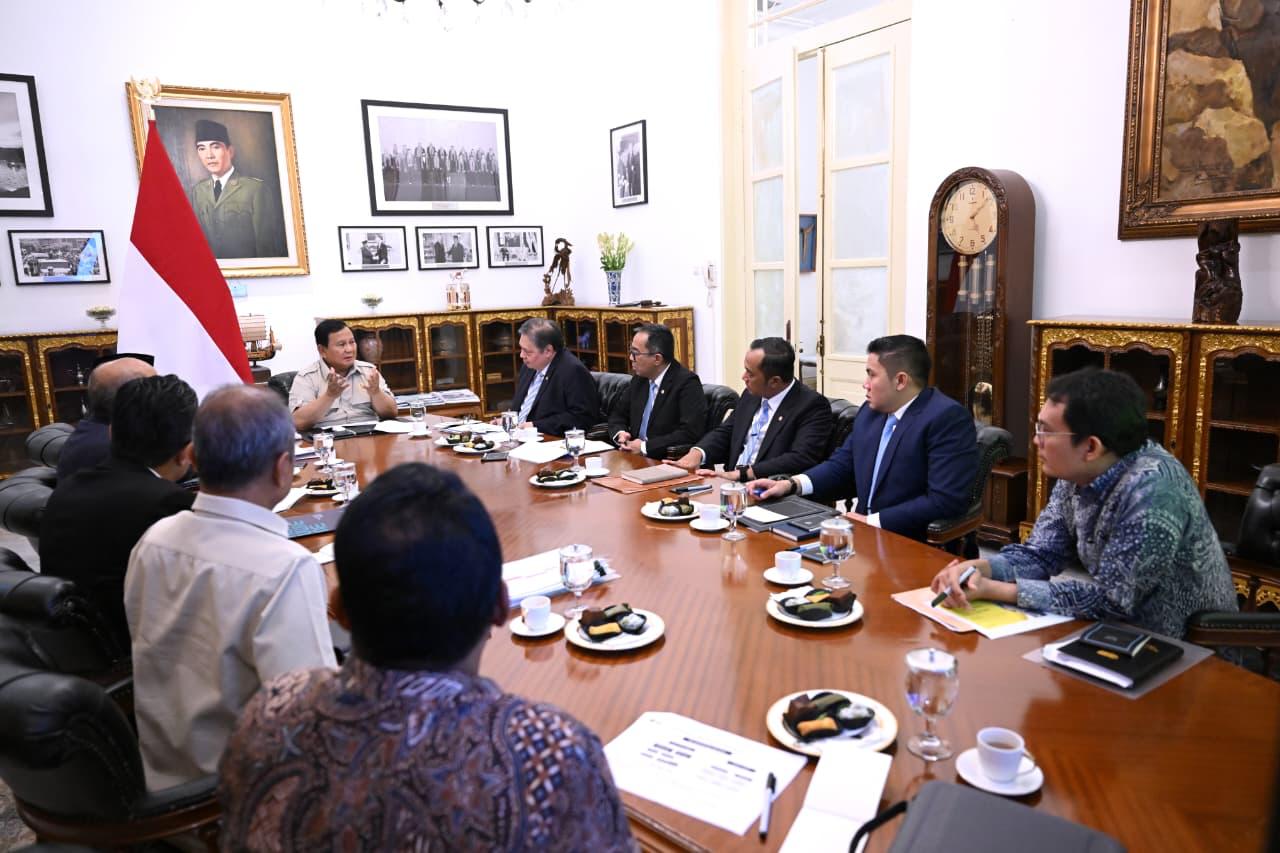Govt Announces Strategies to Boost Indonesias Forex Reserves

Industry Minister Airlangga Hartarto answers reporters question after attending a Limited Meeting at Bogor Presidential Palace, West Java, Tuesday (31/7). (Photo by: Rahmat/Public Relations Division)
Minister of Industry Airlangga Hartarto has announced that the Government will rely on three measures to boost Indonesias foreign exchange reserves, namely implementing Biodiesel 20 (B20) program, intensifying the policy on local content requirement (TKDN), and optimizing tourism sector services.
“We will rely on, among others, the implementation of the B20 program and the intensifying of the TKDN policy,” the Minister told reporters after a Limited Meeting on Policy Strategy to Strengthen Foreign Exchange Reserves at the Bogor Presidential Palace, West Java, Tuesday (31/7).
Regarding the implementation of the B20 program, Airlangga explained that it is for non-PSO (Public Service Obligation), while the PSO is already in place. “No technical barriers are found in the implementation, be it in the PSO or non-PSO. It is now the companies which distribute fuel need to be prepared for it,” he explained.
Regulations on the use of B20 for non-PSO, the Minister continued, are currently being finalized. However, he dismissed the speculation if it will be implemented because there will be a statement of readiness from the automotive industry and heavy equipment on Thursday. In addition, it is also expected that the distributors or the sellers are already capable of providing the B20, he said.
As for intensifying the policy on TKDN, Airlangga said that the Government is considering to also implement it in several other sectors, such as in the upstream oil and gas sector as well as at state-owned electricity company PLN. “We will boost the TKDN policy in the upstream oil and gas sector and at the PLN and now we need to prepare a presidential decree,” he said.
However, Airlangga declined to mention the percentage of local components required to be applied in the upstream oil and gas sector and at the PLN and explained that this is not the same as the one implemented in the automotive sector.
It is expected that from the use of local components alone, the Government can save USD2 million, while from the B20 implementation, USD5.6 million is expected to be saved each year, the Minister said.
In the meantime, President Joko Jokowi Widodo during the meeting underscored two important strategies to boost the countrys foreign exchange reserves to strengthen the economy amidst global uncertainty, namely import control and export increase. “I want re-evaluation in details of our imports. We have to stop or reduce non-strategic goods,” the President said.
The President also called on immediate implementation of the mandatory biodiesel use, which according to the Governments data, can slash a very large import of fuel worth USD21 million per day. The President also highlighted the increase in local component use, which has been discussed since 1.5 or two years ago; yet the implementation is still far from optimal. (FID/JAY/RAH/ES) (MUR/EP/YM/Naster).








